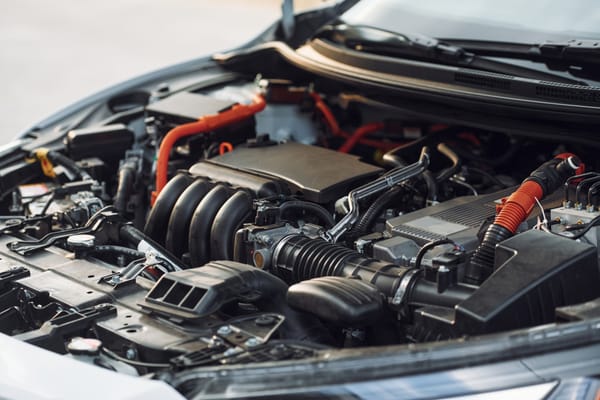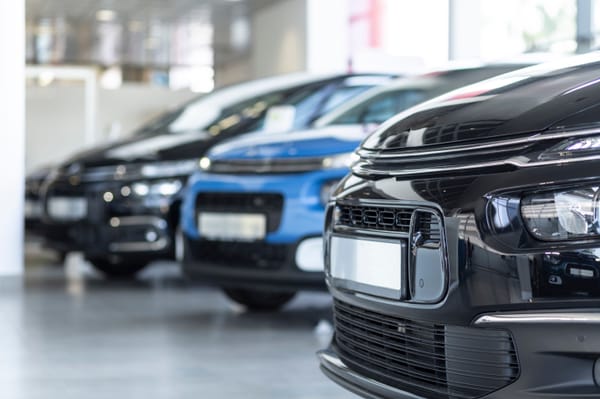When Does Trading in Your Car Make Sense? Who Are Trade-ins For?

Sometimes, holding on to your current car feels like dragging an anchor. But trading it in? That can clear space, save time, and maybe even help you budget for SHIF-SHA.
Still, you wonder: should I trade in or sell privately?
While trading in can feel convenient, you still have to consider, does it work for you? Some situations make trade-ins perfect. Others? Not so much.
Let's break down when trading in works best and who should consider this route.
What Exactly is a Trade-In?
A trade-in means selling your current car directly to a dealer when buying another one. Simple process:
- Dealer takes your old car, assesses value, then you use it as part-payment for a new or pre-owned one.
- That means, instead of selling your car to strangers, you hand it to a business that can help you with handling the testing, paperwork, and giving you credit.
- If your old car’s value + your cash top-up = desired car price, you drive away without much stress.
See? Convenient. You bring your Toyota Vitz, they give you credit toward that Subaru Forester you've been dreaming about.
Signs It’s Time to Trade In
You might hesitate, but here are clear indicators:
1. When Repairs Are Becoming Your Life
If your car is always at the mechanic, hadi anajua kila dent and scratched paint, it may cost more in parts & labour than upgrading. On Kenyan roads, wear & tear is mad.
2. If Safety & Features Are Lacking
No ABS, airbags, ESC? Those are basics now. If your idea of comfort includes working A/C and reliable suspension, trading makes sense.
3. Depreciation Has Hit Hard
Older models and high mileage reduce resale value fast. Read this blog piece to learn how depreciation affects your car over the years.
4. When Market Conditions Help You
- If that car yard/showroom or a dealer is offering a good trade-in value.
- If new taxes or import duties are rising, making older cars costlier to keep. For example, changes in the Current Retail Selling Price (CRSP) for Used Motor Vehicles affect car prices.
- If the used car market is hot, yours might fetch a better value.
Who Actually Benefits From Trade-ins?
Trade-ins aren’t for everyone. But for some, they are a solid move. Check if you fit this:
- People who hate selling privately: Avoiding endless calls, no-shows, shady “maybe buys.” Trade-in cuts that nonsense.
- Those who want to finance their next purchase: Having a trade-in can strengthen your loan application. You can use the amount as a down payment for your upgrade!
- Upgraders who don’t want to lose value: When you want a better ride (more space, more comfort, better safety) without getting ripped off.
- Busy folks: People whose time is worth more than haggle time. You bring the ride, pick the new one, top up, sign, and drive. Fewer headaches.
- First-time sellers: Never sold a car before? Trade-ins remove the learning curve entirely. No need to research market values, write compelling ads, or negotiate with strangers. You simply get a valuation of your car, you decide yes or no, and move on.
The Other Side: When a Trade-in Might Not Be for You
To be objective, if your number one goal is to get every last shilling of value out of your car, and you have the time and patience to wait for the highest bidder, a private sale might get you a slightly better price. However, that extra cash comes at the cost of your time, effort, and peace of mind.
Also:
- If your car is very unique / niche, you may get better offer privately.Market speciality vehicles are mostly appreciated by enthusiasts. So, if your car is unique, highly modified with premium aftermarket parts, you might not get a fair trade-in value.
- If upcoming costs (taxes, duties) make swapping expensive anyway, you might want to sell privately
What To Watch Out For (Before You Walk Into Trade-in)
To make trade-in work, you must do some groundwork:
- Check the condition of the car: dents, service history, mileage. Kuwa na a clean ride pia ni muhimu.
- Know the market value vs market price: Be clear on what your car should be worth vs the valuation you’ve got. This way, you know what to expect and how to compromise.
- Fix small things if cost-effective: replace bulbs, minor dents. These small issues can lower offers.
- It also makes sense to get multiple quotes. This way, you know you are not being played. Some yards specialise in certain brands and might pay more for their preferred inventory.
Trade-in vs Selling Privately: Quick Comparison
How Trade-In Works at Peach Cars
Peach Cars already has a process to make trade-ins smooth. Here’s what you need to know:
- You bring your car to the yard. We inspect the condition, check the service history, and test drive it.
- We give you an offer. If you accept, the trade-in value becomes part of the new car cost; you top up the gap.
- If you still owe on loan, Peach Cars can help clear that. We also deal with the logbook transfer from the lender.
- Final paperwork, title transfer, ownership & you drive away with the new ride.
So, What Should You Do?
If you’re thinking trade-in might be right:
- Get a valuation from Peach Cars (or few dealers) so you know ballpark figure.
- Fix the small stuff, clean up that ride so offers aren’t low-balled.
- Compare trade-in vs private sale vs just keeping it. Math matters.
- When ready, drop by Peach Cars or reach us via +254 709 726 900 and see what we can offer you.
That said, trading in your car can make a lot of sense, especially if you want convenience, safety, a better ride, and fewer headaches. At Peach Cars, we offer a transparent and fair trade-in process. We conduct a thorough, 288-point inspection on your car and give you a data-driven valuation that you can trust.
Reach out to us and we’ll walk you through what’s fair, what’s available, and get you from “this one’s making noise” to “look at this beauty.”




